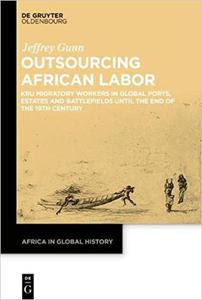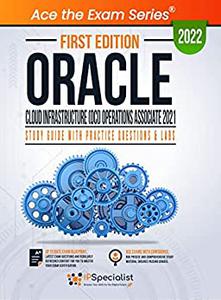 Jeffrey Gunn, "Outsourcing African Labor: Kru Migratory Workers in Global Ports, Estates and Battlefields until the End of the 19th Cen"
Jeffrey Gunn, "Outsourcing African Labor: Kru Migratory Workers in Global Ports, Estates and Battlefields until the End of the 19th Cen"English | ISBN: 311068022X | 2021 | 220 pages | PDF | 33 MB
By the late eighteenth century, the ever-increasing British need for local labour in West Africa based on malarial, climatic, and manpower concerns led to a willingness of the British and Kru (West African labourers from Liberia) to experiment with free wage labour contracts. The Krus familiarity with European trade on the Kru Coast (modern Liberia) from at least the sixteenth century played a fundamental role in their decision to expand their wage earning opportunities under contract with the British. The establishment of Freetown in 1792 enabled the Kru to engage in systematized work for British merchants, ship captains, and naval officers. Kru workers increased their migration to Freetown establishing what appears to be their first permanent labouring community beyond their homeland on the Kru Coast. Their community in Freetown known as Krutown provided a readily available labour pool and ensured their regular employment on board British commercial ships and Royal Navy vessels circumnavigating the Atlantic and beyond. In the process, the Kru established a network of Krutowns and community settlements in many Atlantic ports including Cape Coast, Fernando Po, Ascension Island, Cape of Good Hope, and in the British Caribbean in Demerara and Port of Spain.



![S.T.A.L.K.E.R. 2 / STALKER 2: Heart of Chornobyl - Ultimate Edition (2024) [+UPDATE 23.12.2024 - v1.1.3] ElAmigos / Polska wersja językowa](https://i.postimg.cc/Zqd8RWGY/UZG8PBE.jpg)



















































![David Gilmour - Luck and Strange (2024) [FLAC]](https://i.imgur.com/everaBc.jpeg)
![Męskie Granie Orkiestra - Męskie Granie 2024 (2024) [FLAC]](https://i.imgur.com/FAyOxrM.jpeg)
![The Rolling Stones - Hackney Diamonds (2023) [FLAC]](https://i.imgur.com/wCkyyUN.jpg)
![Lady Gaga - Harlequin (2024) [FLAC]](https://i.imgur.com/dcgIA8D.jpeg)
![Natalia Kukulska - Dobrostan (2024) [FLAC]](https://i.imgur.com/bdljG3O.jpeg)
![Kaśka Sochacka - Ta druga (2024) [FLAC]](https://i.imgur.com/hORQKvn.jpeg)
![Kuba Sienkiewicz - Pani Bóg (2024) [FLAC]](https://i.imgur.com/qijCx8Z.jpeg)
![Lanberry - Heca (2024) [FLAC]](https://i.imgur.com/8P7QfeR.jpeg)
![Sara James - PLAYHOUSE (2024) [FLAC]](https://i.imgur.com/m4f8OKg.jpeg)
![Grzegorz Hyży - EPILOG (2024) [FLAC]](https://i.imgur.com/8DA2sBr.jpeg)
![Myslovitz - WIECZORAMI CHŁOPCY WYCHODZĄ NA ULICE (2024) [FLAC]](https://i.imgur.com/l9mMtIG.jpeg)
![Krzysztof Zalewski - ZGŁOWY (2024) [FLAC]](https://i.imgur.com/vh48RAc.jpeg)
![Krzysztof Cugowski - Wiek to tylko liczba (2024) [FLAC]](https://i.imgur.com/SBzgqe2.jpeg)
![Nosowska - Kasia i Błażej (2024) [FLAC]](https://i.imgur.com/mObvVXQ.jpeg)
![sanah - Pianinkowe Kaprysy (2024) [FLAC]](https://i.imgur.com/pVjjPAa.jpeg)
![Kwiat Jabłoni - Pokaz slajdów (2023) [FLAC]](https://i.imgur.com/diERHfZ.jpg)
![Robert Cichy - Spacer po Warszawie (2024) [FLAC]](https://i.imgur.com/ixleU9o.jpeg)
![Viki Gabor - Terminal 3 (2024) [FLAC]](https://i.imgur.com/Q1KCnDs.jpeg)
![Sanah - Kaprysy (2024) [FLAC]](https://i.imgur.com/71OZm4h.jpeg)
![Męskie Granie Orkiestra - Męskie Granie 2023 (2023) [FLAC]](https://i.imgur.com/U4YHo8d.jpg)




